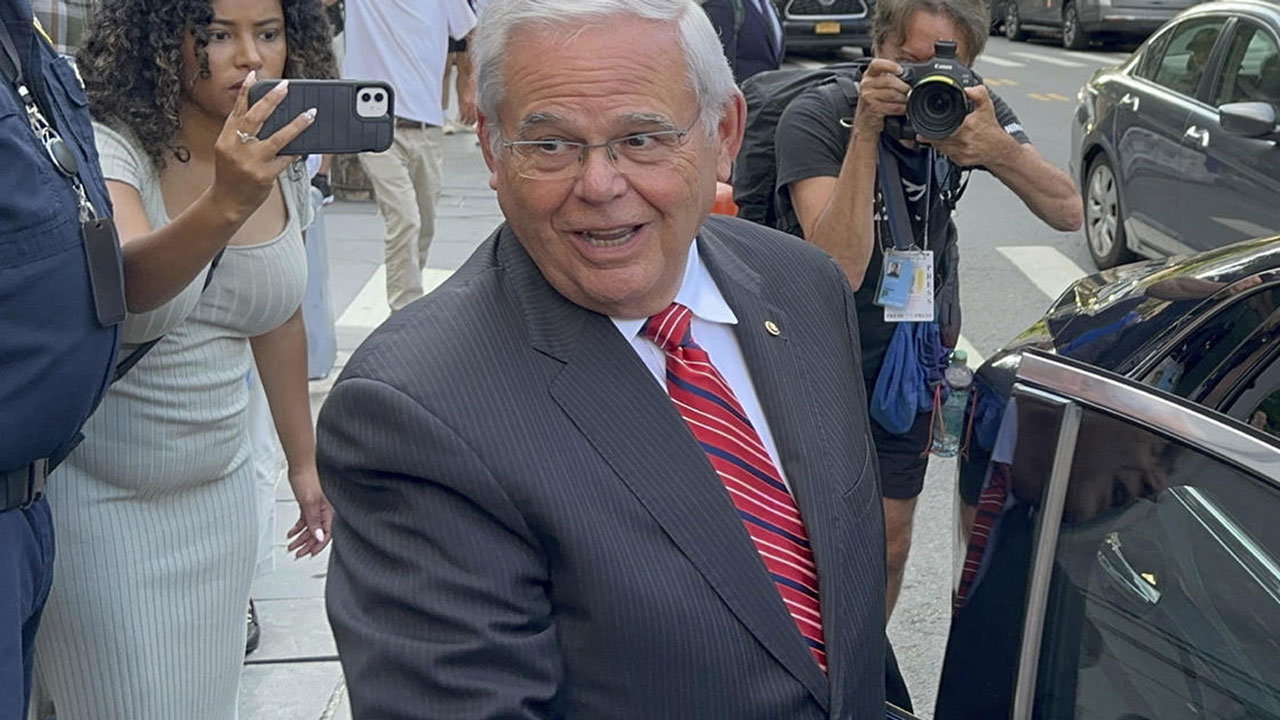Supreme Court Denies Stay In Case Of City Of Tulsa v. Hooper
The Supreme Court declined Friday afternoon a stay for City Of Tulsa v. Hooper.Friday, August 4th 2023, 6:10 pm
WASHINGTON, D.C. -
Editor's Note: The Associated Press contributed to this report.
The Supreme Court declined Friday afternoon a stay for City Of Tulsa v. Hooper, leaving in place a lower court ruling that invalidated a speeding ticket against a Native American man in Tulsa, Oklahoma, because the city is located within the boundaries of an Indian reservation.
City Of Tulsa v. Hooper is a case regarding a speeding ticket dispute between Justin Hooper and the City of Tulsa. The justices rejected an emergency appeal by Tulsa to block the ruling while the legal case continues. The order is the latest consequence of the high court’s landmark 2020 decision that found that much of eastern Oklahoma, including Tulsa, remains an Indian reservation.
In June, the 10th Circuit Court of Appeals ruled that the Curtis Act no longer applies, meaning the City of Tulsa was not authorized to issue a speeding ticket to Hooper because he is a tribal citizen. The Curtis Act of 1898 resulted in the weakening of tribal governments by "abolishing tribal courts and subjecting all persons in the territory to federal law."
Justin Hooper, a citizen of the Choctaw Nation, was cited for speeding in 2018 by Tulsa police in a part of the city within the historic boundaries of the Muscogee (Creek) Nation. He paid a $150 fine for the ticket, but filed a lawsuit after the Supreme Court’s ruling in McGirt v. Oklahoma. He argued that the city did not have jurisdiction because his offense was committed by a Native American in Indian Country. A municipal court and a federal district court judge both sided with the city, but a three-judge panel of the 10th U.S. Circuit Court of Appeals reversed the lower court’s decision.
There were no noted dissents among the justices Friday, but Justice Brett Kavanaugh wrote a short separate opinion, joined by Justice Samuel Alito, in which he said that Tulsa’s appeal raised an important question about whether the city can enforce municipal laws against Native Americans.
Read the statement issued by Supreme Court Justice Brett Kavanaugh:
The application for stay of the mandate presented to Justice Gorsuch and by him referred to the Court is denied. The order heretofore entered by Justice Gorsuch is vacated.
Statement of Justice Kavanaugh, with whom Justice Alito joins, respecting the denial of the application for stay:
The City of Tulsa's application for a stay raises an important question: whether the City may enforce its municipal laws against American Indians in Tulsa. For example, may Indians in Tulsa violate the City's traffic safety laws without enforcement by the City?
The application, however, arises in an interlocutory posture. The District Court granted the City's motion to dismiss on the ground that the Curtis Act of 1898, see ch. 517, 30 Stat. 495, gives the City jurisdiction over municipal violations committed by all persons, including Indians. But the Court of Appeals for the Tenth Circuit reversed, holding that the Curtis Act confers no such jurisdiction. The Court of Appeals then remanded the case to the District Court for further proceedings.
Importantly, the Court of Appeals declined for now to reach an additional argument raised by the State of Oklahoma as amicus curiae: that the City may exercise jurisdiction under the reasoning in Oklahoma v. Castro-Huerta, 597 U.S.__(2022). On remand in the District Court, the City may presumably raise that argument. Moreover, as I understand it, nothing in the decision of the Court of Appeals prohibits the City from continuing to enforce its municipal laws against all persons, including Indians, as the litigation progresses.
Oklahoma Governor Kevin Stitt released the following statement:
“The Supreme Court, through Justice Kavanaugh’s statement, made clear today that the City of Tulsa and municipalities throughout the eastern half of Oklahoma can and must still apply their laws to everyone, Indians and non-Indians alike. The 10th Circuit’s decision isn’t final and doesn't change how we operate here in Oklahoma. Any statement to the contrary should be seen for what it is— a call to chaos. This is a victory for Oklahoma and the rule of law. I will not let eastern Oklahoma become a reservation.”
This is a developing story. Refresh this page for updates.
More Like This
August 4th, 2023
April 9th, 2025
July 16th, 2024
September 21st, 2023
Top Headlines
June 18th, 2025
June 18th, 2025
June 18th, 2025
June 18th, 2025









